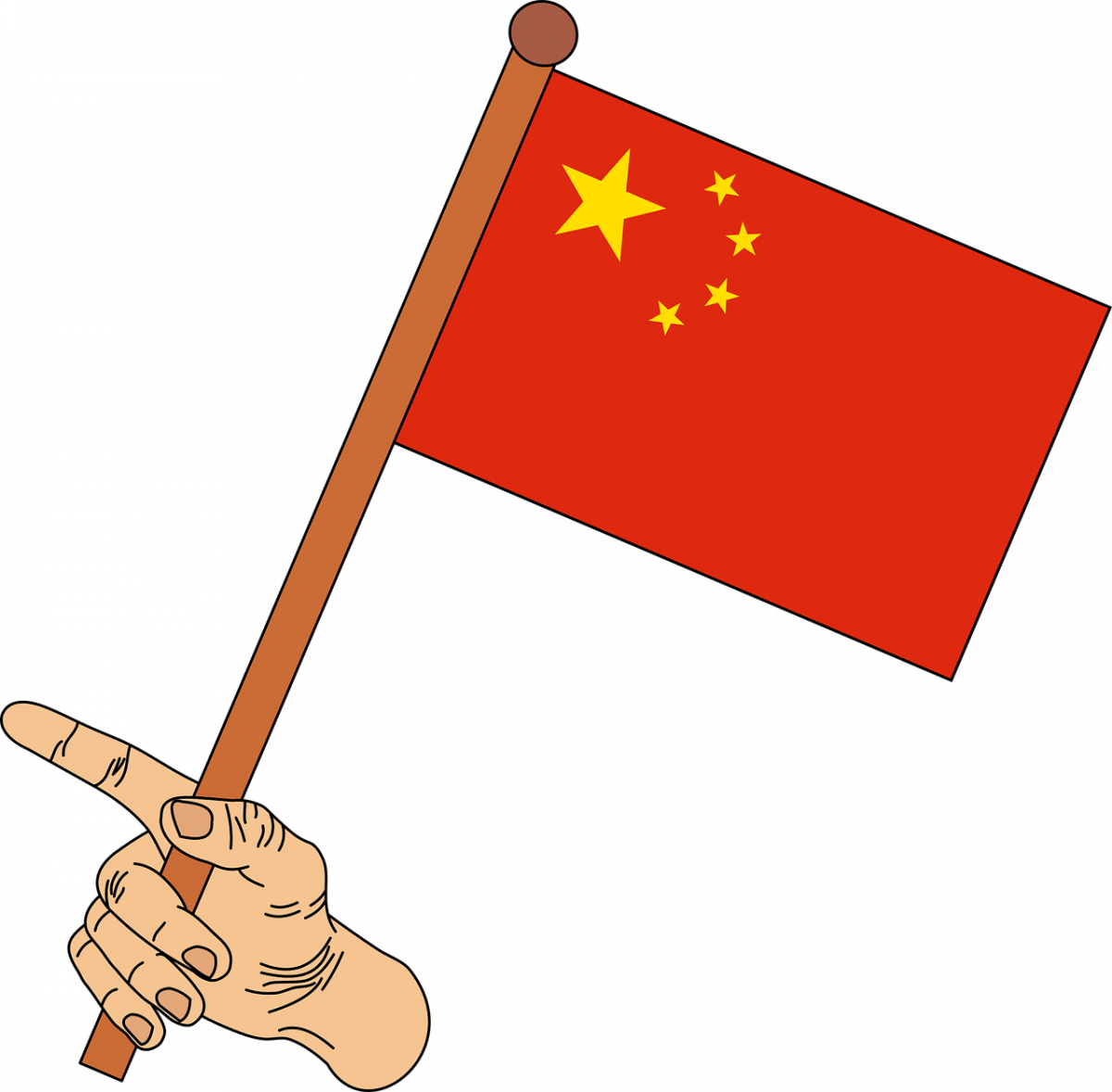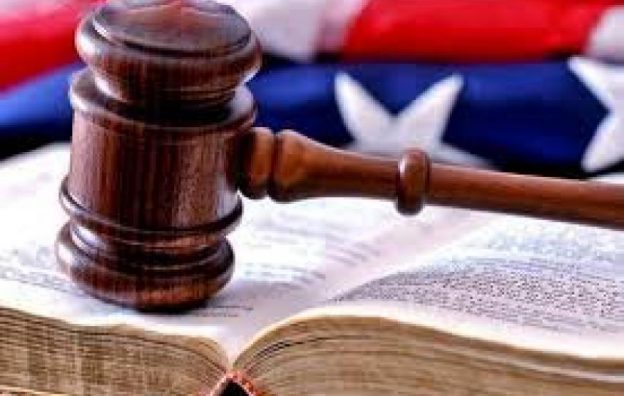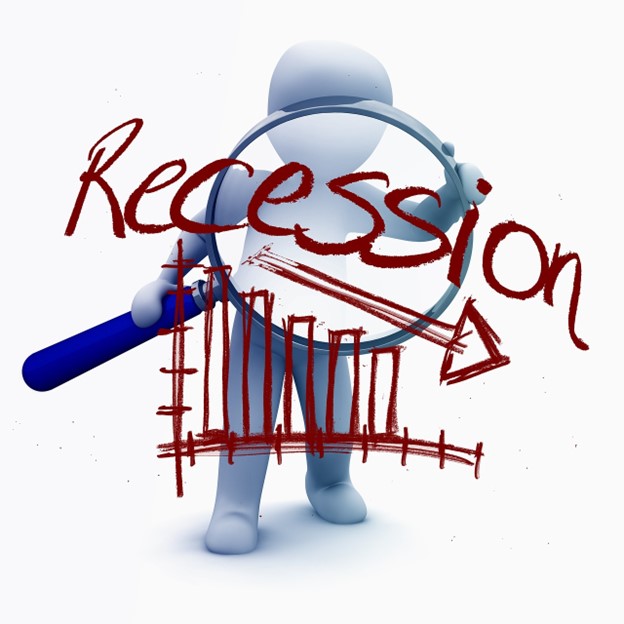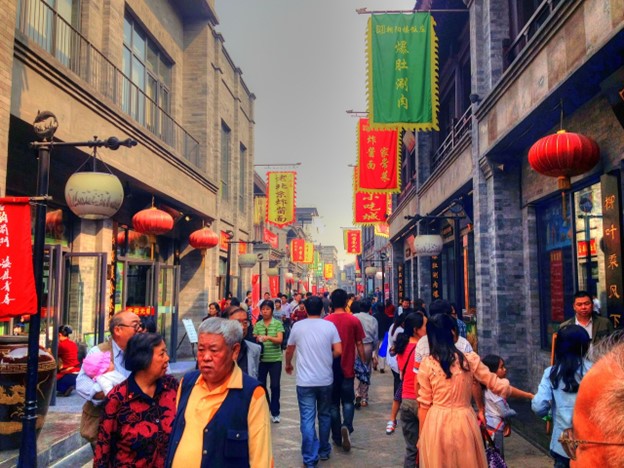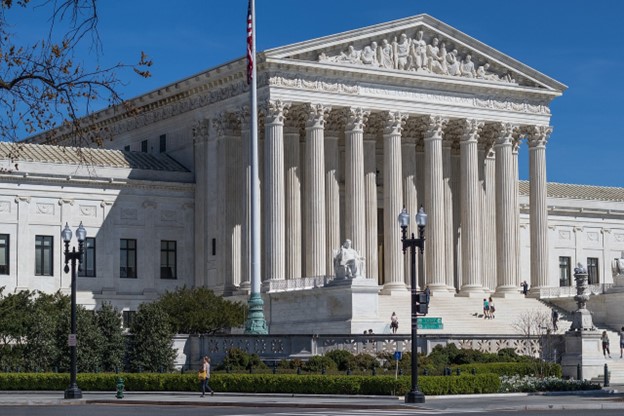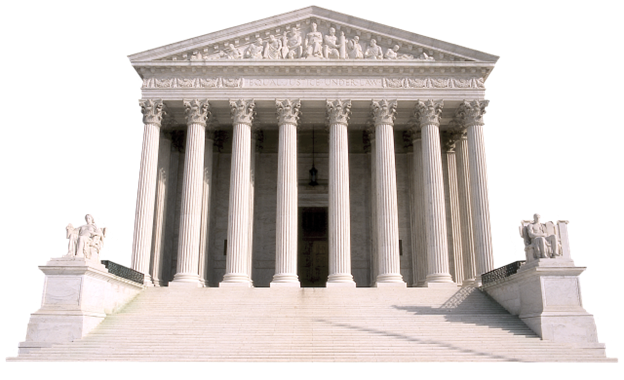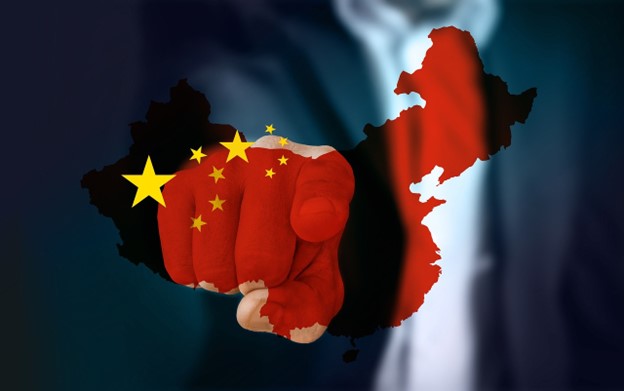On July 9, 2024, our own Judge John H. Wilson (ret.) testified before the House Judiciary Committee on the the Trump trial before Judge Juan Merchan. We present his testimony here.
Members of the House Judiciary Committee:
Thank you for the opportunity to appear before you to discuss the criminal trial of former President Donald Trump, held before Judge Juan Merchan, Acting Supreme Court Justice, New York County Supreme Court, Criminal Term earlier this year.
As you may be aware, I served as a Criminal Court Judge in and for both Kings County and Bronx County, New York City, from 2005 to 2014. For five years of my term, I served as the Night Court Arraignment Judge in Kings County, where I was designated an Acting Supreme Court Justice. Before my election to the bench in 2004, I served as an Assistant District Attorney in Bronx County, and as a criminal defense attorney. Although I never tried a felony case as a judge, I tried a number of felony cases as defense counsel, including homicides, child molestation, drug sales, etc.
I was involved in all phases of criminal litigation for approximately 30 years. I have sat in all three seats – prosecutor, defense counsel, and judge. As all three, I have selected juries, opened, introduced evidence, directed and cross-examined witnesses, closed, and taken verdicts. I have prepared jury instructions as a judge, and I have drafted and argued appeals of criminal convictions for both felonies and misdemeanors.
I do not personally know Judge Juan Merchan, but I am intimately familiar with New York County Supreme and Criminal Court, having spent most of my career in those courtrooms.
Based on my experience, I can tell you in no uncertain terms that former President Trump did not receive a fair trial from Judge Juan Merchan. In fact, if the Court of Appeals is fair (and I believe that Court will be fair based upon the reversal of Harvey Weinstein’s illegal conviction), Donald Trump’s conviction is assured reversal, a reversal that will be premised upon the fundamental errors committed by Judge Juan Merchan.
If I may be blunt – Donald Trump was railroaded, and Juan Merchan was the driver of that train.
There is a plethora of appellate issues available in this case. But for the purposes of this statement, I would like to concentrate on the most glaring problems presented by Judge Merchan’s conduct of this trial.
1. The Indictment was Legally Insufficient and Should have been Dismissed.
The first issue involves the charging document, the indictment, which should have been dismissed by Judge Merchan, with leave to represent the case to another Grand Jury.
In my book, The Making of a Marty, An Analysis of the Indictments of Donald Trump, Chapters 5 thru 7 discuss the legal insufficiency of the New York County indictment. I noted that under Section 200.50 of the New York State Criminal Procedure Law, ‘an indictment must contain…(a) statement in each count that the grand jury…accuses the defendant…of a designated offense,” as well as “a plain and concise factual statement in each count which… asserts facts supporting every element of the offense charged and the defendant`s…commission thereof with sufficient precision to clearly apprise the defendant…of the conduct which is the subject of the accusation.”
I wrote that my “review of the New York County indictment revealed that Donald Trump was accused of causing a false entry to be made in his business records for the purpose of committing another crime. What other crime? The indictment does not say. Simply put, how is former President Trump to prepare a defense, if he is not informed of the ‘other crime’ he intended to commit or conceal when he allegedly falsified his business records?”
There is a wealth of case law addressing this issue, but on balance, the principle is the same across all cases – a defendant has the absolute right to know what he is being charged with, so that he may prepare a defense.
That did not happen in the case of Donald Trump. Judge Merchan was obligated to dismiss an indictment that failed to identify the underlying crime. How is former President Trump to prepare a defense, if he didn’t know what underlying crime he was allegedly concealing by falsifying his business records?
Some have pointed to the Statement of Facts provided by the New York County District Attorney’s Office, but that is not the Indictment. Under the law, a Defendant is entitled to know what he is charged with in the charging document itself, not in a supplemental document such as a Bill of Particulars or a Statement of Facts.
Further, that Statement of Facts does not identify what crime underlies the felony falsifying business records charge – it just recounts the actions Donald Trump allegedly took without any expression of what laws were allegedly violated.
Therefore, the Indictment was legally insufficient from its inception, and any competent judge would have dismissed an indictment with these deficiencies.
2. The Failure to Dismiss the Indictment Led Directly to a Violation of Donald Trump’s Constitutional Right to a Fair Trial, and to Judge Merchan’s Illegal Jury Instructions.
The problem with the indictment was never resolved while the case was pending. However, at the end of trial, the prosecutors and judge finally revealed to the defense the theory of their case, which was described by George Washington Law Professor Jonathan Turley in this way; “Merchan told the jury members that they [could] base their verdict on any one of three vaguely defined crimes of a federal election violation, falsification of business records or taxation violations. Thus, the jury could have divided 4-4-4 on what occurred but the verdict was still treated as unanimous by Merchan to convict Trump.”
To reiterate, I believe the failure to dismiss a clearly facially insufficient indictment was Judge Merchan’s first major error. This error then led to the second error – allowing the prosecutor to add charges during the trial, charges which were then incorrectly and illegally described to the jury in Judge Merchan’s jury instructions.
Judge Merchan’s instructions stated that “under [New York State] law, although the People must prove an intent to commit another crime or to aid or conceal the commission thereof, they need not prove that the other crime was in fact committed, aided, or concealed.” This is true in so far as it goes, however, the “other crime” the former President intended to conceal was finally revealed – “a violation of New York Election Law section 17-152 [which] provides that any two or more persons who conspire to promote or prevent the election of any person to a public office by unlawful means…”
How did Donald Trump intend to violate New York State’s Election Law? In one of three ways, “in determining whether the defendant conspired to promote or prevent the election of any person to a public office by unlawful means, you may consider the following: (1) violations of the Federal Election Campaign Act otherwise known as FECA; (2) the falsification of other business records; or (3) violation of tax law.”
Incredibly, when describing these three different laws, each of which represents a different theory of the case, Judge Merchan told the jury that “Although you must conclude unanimously that the defendant conspired to promote or prevent the election of any person to a public office by unlawful means, you need not be unanimous as to what those unlawful means were.”
There are several levels of error presented by these confusing jury instructions. First, as a basic matter, the defendant was never informed of what he was charged with until the trial, a violation of the Constitutional right to fundamental fairness, and notice. Second, when he was informed of these charges, he was not given the opportunity to prepare a defense to these charges because he was already engaged in trial. But the most egregious error was Judge Merchan giving the jurors the option of returning a verdict which was not unanimous regarding the third level of charges.
Regarding both the first and second of these points, that is the addition of charges during trial and the inability to present a defense, it is stated in the Criminal Resource Manual of the United States Department of Justice, “if an essential element of the offense is omitted from the indictment, it cannot, consistent with the principle underlying the Fifth Amendment requirement that prosecution for an infamous crime be instituted by a grand jury, be supplied by the prosecutor or by the courts. As stated in Russell v. United States, 369 U.S. 749, 770 (1962): ‘To allow the prosecution, or the court, to make a subsequent guess as to what was in the minds of the grand jury at the time they returned the indictment would deprive the defendant of a basic protection which the guaranty of the intervention of a grand jury was designed to secure. For a defendant could then be convicted on the basis of facts not found by, and perhaps not even presented to, the grand jury which indicted him.’“
There can be no doubt that the illegal action described above is exactly what happened in the case of Donald Trump. The Grand Jury did not return an indictment describing any violation of New York State’s Election law, nor did it enumerate any violations of Federal Elections Law, falsification of other business records, or violations of any tax laws. Instead, the Grand Jury only described “other crimes” as the predicate for the felony charge of Falsifying Business Records.
In other words, the New York County District Attorney and Judge Merchan both illegally presented charges to the jury that were not included in the indictment. In doing so, former President Donald Trump was not given a fair chance to prepare a defense to these added charges.
Regarding the third point, that is the lack of unanimity permitted to the jury, it is unheard of in New York State jurisprudence to instruct a criminal jury that they need not be unanimous in their verdict. I am unaware of any case in New York, or any other American jurisdiction, state or federal, in which a criminal jury has been allowed to come to a verdict that was not unanimous in any felony trial.
In fact, on June 21 of this year, the Supreme Court decided the case of Erlinger v. United States, (Slip Opinion No. 23-370), in which the necessity for a verdict to be unanimous under both the Fifth and Sixth Amendments to the United States Constitution was reiterated. Both of those amendments require a jury to be unanimous when rendering its verdict.
Judge Merchan’s erroneous instructions led directly to our not knowing which jurors went with which theory of the case. Did some think Donald Trump falsified his business records in order to hide the fact that he was falsifying his business records? Did some think was he falsifying his business records to conceal some unspecified violation of either the Tax Code or Federal Election law?
Returning again to the issue of fundamental fairness – how can any defendant prepare a defense against such an ever-shifting series of charges?
Clearly, Judge Merchan violated Donald Trump’s right to notice of the charges prior to trial, his right to a fair trial, and his right to a unanimous verdict.
3. Judge Merchan’s Decision to Allow the Prosecution to Use Civil Penalties Against Donald Trump Should he Choose to Testify Violated the Former President’s Right to a Fair Trial.
As a third appellate issue, I refer again to the reversal of Harvey Weinstein’s conviction.
In Harvey Weinstein’s case, the New York Court of Appeals stated the following: “the trial court erroneously admitted testimony of uncharged, alleged prior sexual acts against persons other than the complainants of the underlying crimes because that testimony served no material non-propensity purpose. The court compounded that error when it ruled that the defendant, who had no criminal history, could be cross examined about those allegations as well as numerous allegations of misconduct that portrayed defendant in a highly prejudicial light. The synergistic effect of these errors was not harmless. The only evidence against defendant was the complainants’ testimony, and the result of the court’s rulings, on the one hand, was to bolster their credibility and diminish defendant’s character before the jury. On the other hand, the threat of a cross-examination highlighting these untested allegations undermined defendant’s right to testify. The remedy for these egregious errors is a new trial.”
In other words, several witnesses were allowed to testify against Weinstein as to sexual assaults with which Weinstein was not charged. These witnesses portrayed Weinstein as a sexual predator and made it more likely that the jury would believe the victims, even if there were weaknesses and inconsistencies in the victims’ own testimony. Moreover, the prosecution could question Weinstein about these uncharged assaults, were he to testify in his own defense.
Certainly, it is understandable for some to believe that Weinstein was, in fact, a loathsome person who deserved his conviction and sentence. Be that as it may, according to the Court of Appeals; “the accused has a right to be held to account only for the crime charged and, thus, allegations of prior bad acts may not be admitted against them for the sole purpose of establishing their propensity for criminality.”
In the trial of Donald Trump, as described in Politico, “if Donald Trump takes the stand, prosecutors will be allowed to grill him under oath about several adverse rulings in his past civil cases, Justice Juan Merchan ruled…Prosecutors will be allowed to elicit testimony about Trump being found liable for fraudulently inflating his business assets in a suit brought by New York Attorney General Letitia James. They will also be allowed to question him about defamatory statements he made about writer E. Jean Carroll. In a civil case last year, a federal jury determined that Trump sexually abused Carroll in a department store in the 1990s, and in two civil cases, Trump was found liable for defaming Carroll. Merchan also ruled that, if Trump testifies, prosecutors can ask him about fines he received for violating a gag order in the business fraud case when he verbally attacked the law clerk of the judge overseeing that case.”
At the time, even Politico had to concede that this was “a significant loss for the former president that will complicate his self-declared plan to testify in his own defense.”
Former President Trump did not testify at his own trial at least partially based on this ruling. This is the very eventuality the Weinstein decision warns about, and that the Court finds to be an unconstitutional violation of the defendant’s rights; again, quoting the New York Court of Appeals, “Every person accused of a crime is constitutionally presumed innocent and entitled to a fair trial and the opportunity to present a defense. Under our system of justice, the accused has a right to be held to account only for the crime charged and, thus, allegations of prior bad acts may not be admitted against them for the sole purpose of establishing their propensity for criminality… It is our solemn duty to diligently guard these rights regardless of the crime charged, the reputation of the accused, or the pressure to convict.”
Based on the ruling in the Weinstein case, Judge Merchan’s decision to allow the use of prior civil verdicts against Donald Trump were he to choose to testify was a violation of the former President’s right to a fair trial and deprived the former President of the opportunity to present a defense.
4. Judge Merchan Should Have Recused Himself from Hearing the Case of Donald Trump based upon the Overwhelming Appearance of Impropriety.
The fourth appellate issue involves the failure of Judge Juan Merchan to recuse himself from presiding over this case. According to the New York Post, Judge Merchan “donated $35 to Democratic causes in 2020, including $15 to President Biden’s campaign and $10 to a group dedicated to ‘resisting … Donald Trump’s radical right-wing legacy.’ Federal Election Commission records show Merchan made three small-dollar donations within the span of two days in July 2020 through ActBlue, the Democratic Party’s preferred online fundraising platform. The veteran judge contributed $15 earmarked for the ‘Biden for President’ campaign on July 26, 2020, and then the following day made $10 contributions to the Progressive Turnout Project and Stop Republicans.”
Under Rule 100.5(A)(1) of the Rules of the Chief Administrative Judge for the State of New York, “Neither a sitting judge nor a candidate for public election to judicial office shall directly or indirectly engage in any political activity except (i) as otherwise authorized by this section or by law, (ii) to vote and to identify himself or herself as a member of a political party, and (iii) on behalf of measures to improve the law, the legal system or the administration of justice. Prohibited political activity shall include…soliciting funds for, paying an assessment to, or making a contribution to a political organization or candidate.”
This means that despite the modest sums donated by Judge Merchan, he is strictly prohibited from making ANY contribution, in ANY amount, to any political organization or candidate.
It is important to note that Judge Merchan did receive an opinion from the New York State Judicial Ethics Committee which absolved the Judge from any wrongdoing, citing to the minimal amount of the contributions. Under New York law, a Judge is entitled to rely upon such an opinion as per se evidence of the propriety of his actions.
Under Rule 100.3(E)(1); “A judge shall disqualify himself or herself in a proceeding in which the judge’s impartiality might reasonably be questioned, including but not limited to instances where…the judge knows that the judge or the judge’s spouse, or a person known by the judge to be within the sixth degree of relationship to either of them, or the spouse of such a person…has an interest that could be substantially affected by the proceeding.”
Loren Merchan, who is Judge Juan Merchan’s daughter, (a first degree of relationship to the judge), is the president of Authentic Campaigns, a Chicago-based progressive political consulting firm. According to The New York Post, Authentic Campaigns top clients include Rep. Adam Schiff (D-Calif.), “who was the lead prosecutor in Trump’s first impeachment trial, and the Senate Majority PAC, a major party fundraiser…Schiff’s campaign for US Senate scored…$20 million in aid since he began soliciting donations off the presumptive GOP presidential front-runner’s unprecedented 34-count indictment last April, according to Federal Election Commission records…The Senate Majority political action committee, which supports Democratic Senate campaigns, pocketed $73.6 million since it also began firing off fundraising emails following the ex-president’s indictment…The super PAC has done more than $15 million in business with Authentic since 2019, including email fundraising and branding assistance, while Schiff’s Senate campaign paid Authentic more than $10 million for digital advertising and other consulting services over the past year.”
This would be an obvious basis for recusal in most cases, but Judge Merchan again sought an opinion on the matter from the Judicial Ethics Committee. Judge Merchan quotes this opinion in his denial of the motion to recuse himself as follows; “On the specific issue of the employment of this Court’s daughter, the Committee wrote ‘the matter currently before the judge does not involve either the judge’s relative or the relative’s business, whether directly or indirectly. They are not parties or likely witnesses in the matter, and none of the parties or counsel before the judge are clients in the business. We see nothing in the inquiry to suggest that the outcome of the case could have any effect on the judge’s relative, the relative’s business, or any of their interests.’ Defendant has failed to demonstrate that there exists concrete, or even realistic reasons for recusal to be appropriate, much less required on these grounds. The speculative and hypothetical scenarios offered by Defendant fall well short of the legal standard.”
When a judge’s daughter raised tens of millions of dollars based on a case before her father, it would seem very narrow of the Judicial Ethics Committee to believe that the outcome of the case would have no impact on her business. It would also seem very arbitrary for the Ethics Committee to make an exception to the rule against political contributions by Judges based upon the amount of those contributions.
It is fair to say that under New York law, Judge Merchan had a right to rely upon these opinions of the Judicial Ethics Committee. However, his failure to recuse himself was a clear and absolute violation of Rule 100.2 of the Rules of the Chief Administrative Judge for the State of New York, which states that “a judge shall avoid impropriety and the appearance of impropriety in all of the judge’s activities” (Emphasis added.) This includes an admonishment that “a judge shall respect and comply with the law and shall act at all times in a manner that promotes public confidence in the integrity and impartiality of the judiciary.”
Hearing the criminal case brought against the Republican candidate for President while your own daughter runs a company that makes millions of dollars working with Democrats and their candidates for office certainly has the appearance of impropriety and does not promote public confidence in the impartiality of Judge Merchan. Nor does the fact that the Judge gave money to the Biden campaign, Progressive Turnout Project and Stop Republicans encourage public confidence in the integrity and impartiality of the judiciary.
To engage in these actions clearly had the appearance of impropriety, and any ethical judge would have recused himself under these circumstances, no matter what cover that judge was provided by a conveniently favorable series of opinions from the New York State Judicial Ethics Committee.
To summarize my points, I believe the following:
1. The indictment was legally insufficient, and Judge Merchan should have dismissed the indictment before trial.
2. The failure to dismiss the indictment led to charges being added during trial, a violation of Donald Trump’s right to fundamental fairness and notice of the charges he faced prior to trial. This deprived Donald Trump of the right to prepare a defense. The jury instructions given by Judge Merchan were illegal in that they included these additional charges and allowed for a non-unanimous verdict.
3. Judge Juan Merchan made unconstitutional and prejudicial rulings that impacted Donald Trump’s ability to present a defense, and
4. Judge Juan Merchan should have recused himself from presiding over this matter, based upon the appearance of impropriety in having contributed to political campaigns (regardless of the amounts) and based upon his daughter’s political activities, regardless of the ethics opinions he received.
There are, of course, other appellate issues which exist in this case; allowing the prosecution to claim federal election law violations without presenting any evidence to support those allegations; not allowing the defense to present a witness regarding federal election law, after allowing the prosecution to make the aforementioned statements; and allowing Stormy Daniels to testify, knowing that the prejudicial effect of her testimony outweighed any probative value are several. It is my belief, however, that the ones I have outlined are what I believe to be the strongest issues to be presented on appeal.
Therefore, it is my considered opinion, based upon my years of legal training and experience, that former President Donald Trump did not receive a fair trial. That Judge Juan Merchan failed in his obligation to be fair and impartial. That Judge Merchan committed a series of errors that necessitate reversal of this conviction. And further, I defy anyone of either good conscience or sound mental facilities to say otherwise.
To be direct, I do not believe anyone can reasonably state that former President Trump received a fair trial in New York County Supreme Court from Judge Juan Merchan.
Faithfully Submitted, John H. Wilson, Judge, Civil Court, Bronx County (ret)
